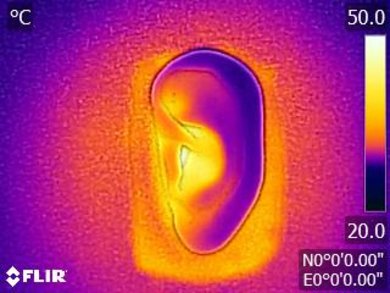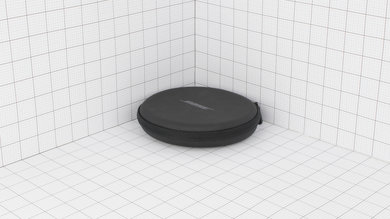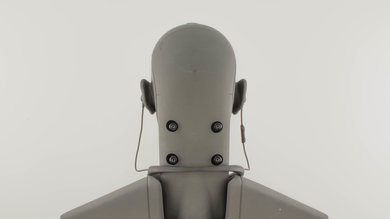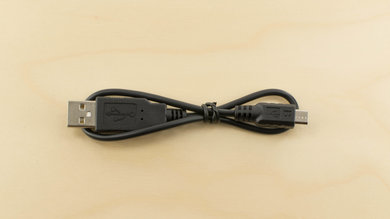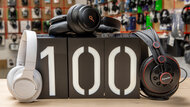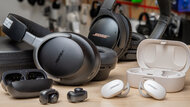The Bose QuietControl 30 are above-average wireless earbuds for most uses cases, that deliver a satisfying sound quality. They're decently portable and offer more control over their noise cancellation than other Bose headphones we've tested so far. However, the noise canceling is not as strong, and although they're stable enough to exercise with the around-the-neck design won't be for everyone.
Our Verdict
The Bose QC30 are good headphones for most use cases. They're comfortable, portable and isolate well in loud environments. They're decent commuting headphones and stable enough to take to the gym. Thanks to their low leakage, they're ideal to use at the office or in quieter environments like a library. They also sound good enough to please most listeners but they may not be the ideal headphones for pure critical listening.
-
Comfortable and stable earbud fit.
-
Very low leakage.
-
Above-average noise isolation.
-
The neckband design won't be for everyone.
-
Laggy when watching videos.
Decent for neutral listening. They have a good bass, a well-balanced mid and treble range, but due to the small and closed back design of the earbuds, they don't have the best soundstage. They will sound good enough for most listeners but won't deliver the ambiance that some neutral listeners are looking for. They also do not have a customizable sound which makes them a bit more restricted when compared to the similarly designed Sony WI-1000X.
Good for commuting. The Bose QuietControl 30 are comfortable, easy to carry around and isolate well in loud environments. They also have a decent control scheme that's easy-to-use especially for NFC-enabled mobile devices.
Suitable for sports use. The StayHear+ tips provide a comfortable and stable fit which, combined with the around-the-neck design, means they will rarely fall to the ground even when exercising intensely. However, the neckband can sometimes get caught on items of clothing which may pull the earbuds out of your ears, but it's a rare issue that really depends on what you're wearing.
Above-average for office use. They barely leak even at high volumes and isolate well enough to block the chatter of a lively workplace. They're comfortable, they have a decent control scheme and wireless range and they have a decent battery life that lasts long enough for a typical work day.
Below-average for gaming. The Bose QuietControl 30 have a mediocre-at-best microphone, and a bit too much latency to be suitable for gaming. Their companion app is also not as customizable as most gaming-oriented software.
- 7.3 Mixed Usage
- 7.2 Neutral Sound
- 7.8 Commute/Travel
- 7.7 Sports/Fitness
- 7.3 Office
- 5.7 Wireless Gaming
- 5.6 Wired Gaming
- 6.6 Phone Calls
Changelog
- Updated Feb 07, 2020: Converted to Test Bench 1.4.
- Updated Nov 21, 2019: Converted to Test Bench 1.3.1.
- Updated Nov 21, 2019: Converted to Test Bench 1.3.
- Updated Jun 18, 2019: We've updated the feedback score of this review to better represent how hard the buttons are to press.
- Updated May 02, 2019: We've updated the Volume Control score to reflect the latest update.
Check Price
Popular Headphones Comparisons
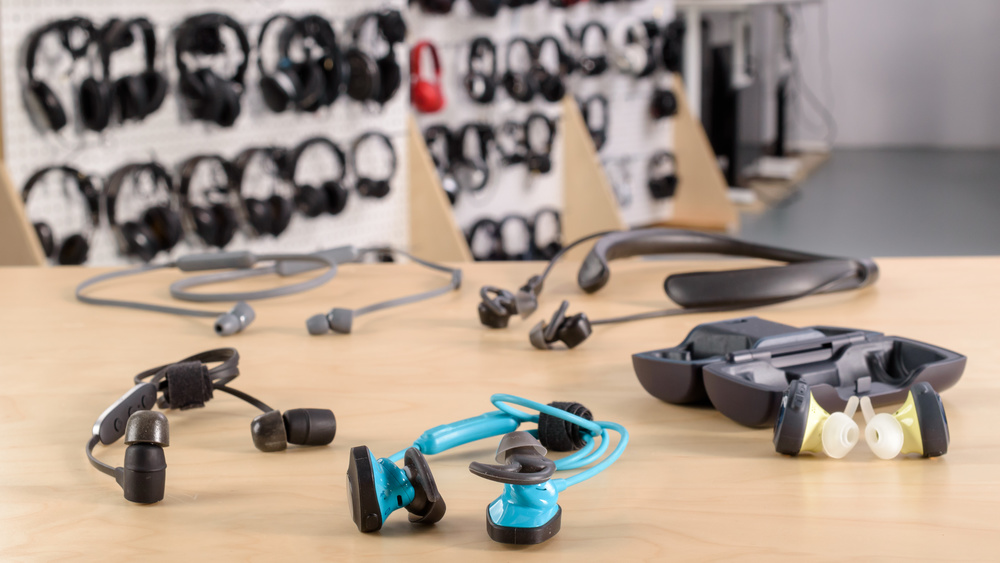
The Bose QuietControl 30 are good commuting and office headphones that are stable enough for the gym. They're one of the best earbuds we've tested; they barely leak and have and a well-balanced sound quality. They’re versatile for almost every use case except watching videos because of their relatively high latency. Their around-the-neck design also won’t be for everyone and they’re fairly pricey compared to competing headphones. See our recommendations for the best noise cancelling earbuds and the best wireless earbuds for iPhone.
The Bose QuietControl 30/QC30 Wireless are a better option for most uses if you want to go wireless; however, for a wired earbud, the Bose QuietComfort 20/QC20 are a good choice. The QC 30 benefit from the greater range of a Bluetooth connection. They also have a bit more control over their noise cancelling feature when compared to the QC 20. On the upside, the QC 20 have no latency, since they are wired. They also have a slightly stronger noise isolation performance than the QC 30. Also, since they have a simple wired design, they are a bit more portable and will easily fit into your pockets, unlike the QC 30.
The Bose QuietControl 30/QC30 Wireless are a better choice if you want a compact earbud design, but if you prefer over-ears, then get the Bose QuietComfort 35/QC35 Wireless 2016 instead. The QC 35 are a bit more comfortable for everyone, thanks to their lightweight and well-padded over-ear fit. They're also a bit easier to use overall than the QC 30 and have a better battery life, wireless range, sound quality, and soundstage. The QC 30, on the upside, are a lot more compact and travel-friendly and still provide enough isolation for most commutes and long flights. They also barely leak so you can play your music louder without distracting the people around you, which is great for the office.
The Bose QuietControl 30/QC30 Wireless are a much better wireless noise cancelling headset than the Sony WF-1000X Truly Wireless. The Bose have a more comfortable earbud fit, better noise isolation performance, better sound quality, and a longer battery life and wireless range than the Sony. They also have a better latency performance, although both headphones would not be the ideal choice for watching a lot of video content. On the upside, the Sony are a lot more compact than the Bose and will more easily fit into your pocket despite their fairly large charging case. The Sony also have a slightly more premium looking truly wireless design which some will prefer over the Bose even if their wireless connection is not as stable.
The Bose QuietControl 30 are a better wireless headset than the Jabra Elite 65e. The QC 30 isolate better in noisy environments, which make them a bit more suitable for commute and travel. They also have a better-balanced sound quality that will cater better than the Jabra to most music genres. The Jabra, on the other hand, have a customizable sound profile and a more feature-packed app support that gives them a lot of control over their active features. They also have a better in-line mic which makes them more suitable for making calls.
The Bose QuietControl 30/QC30 Wireless and the Sony WI-1000X Wireless each have something good going for them. If comfort is the most important thing for you, get the Bose. If you prefer having sound customization, get the Sony, since their app offers an EQ, which the Bose are lacking. They are both pretty good ANC headphones, but the Bose leak a bit less. However, even if the Bose have a more neutral sounding sound, their treble range is less flat than the Sony. The Bose's build quality is slightly inferior to the Sonys with reports of the rubber coating of the Bose peeling off over time.
The Bose QuietControl 30/QC30 Wireless are better Bluetooth headphones than the Bose Hearphones Wireless thanks to their more neutral sound profile, which some users may prefer, but if the enhanced-conversation mode is what you’re looking for, then consider the Hearphones. On the other hand, the QC 30 has slightly better noise isolation performance, but design-wise, the QC 30 and the Hearphones are practically identical.
Video
Test Results
The Bose QuietControl 30 have a relatively simple design that feels high-end, thanks to the materials used in their build quality. They have a more premium appeal than other around-the-neck designs. They also come in an understated all-black color scheme that won't particularly stand out, which is ideal for some but feels a bit bland.
The Bose QC30, like the SoundSport Wireless, have the comfortable StayHear+ earbud tips that fit snugly within the ear canal. They're comfortable headphones to wear for extended periods of time without experiencing the fatigue that some other in-ear/earbuds may cause. However, the neckband fit won't be for everyone. They are bulkier than the Sony WI-C400, but also more comfortable.
Update 06/18/2019: After reviewing the Bose Hearphones, we adjusted the QC30's control feedback score as the buttons are noticeably harder to press.
Update 02/05/2019: We incorrectly listed that the QC30 doesn't have volume controls. We've updated that score box, but, the text was accurate and didn't need any updates.
The Bose QuietControl 30 have a good control scheme, but the buttons are a bit stiff and difficult to press. They provide the common functionalities like call/music, track-skipping, and volume controls but also two additional buttons on the side of the in-line remote to increase or decrease the level of noise canceling. Unfortunately, although slightly better than that on the SoundSport Wireless, the inline remote is covered by a thick rubber-like material that makes the buttons a bit difficult to press especially the power/Bluetooth sync switch.
The Bose QC30 have a breathable design that won't make your ears sweat more than usual. They trap a bit of heat within the notch of your ear due to their earbud tips and stability fins, but they won't cause a big difference in temperature even during more intense workouts. This makes them a good option for sports and working out.
These headphones do not take too much space, especially when they are not in the case, as the total surface area they occupy is relatively small. However, due to their somewhat odd shape, they won't fit into all pockets but should easily fit into most bags. They're also quite easy to carry on your person if you just let them dangle from your neck.
They come with a good, hard case that will easily shield the headphones against falls, scratches and minor water damage. It adds a bit of bulk to the overall design and won't fit into most pockets but can be carried around in a bag with relative ease.
The Bose QuietControl 30 feel well built. The plastic used for the headband and the earbuds feels dense yet sufficiently lightweight that they won't get damaged if they were to fall from about neck height. However, the cables, although thicker than most in-ear headphones we've reviewed, feel like the main weak point of the build quality. They could snap if pulled on a bit too forcefully which could happen if they get caught off an item of clothing.
Update Unfortunately, we have received a couple reports that the rubber coating of the QC 30 peels off rather easily after a couple months of use. This may not be the case for all users, however since we have also experienced this issue with our unit, we have adjusted the build quality score to reflect this defect.
These earbuds have stability tips of different sizes to provide a stable fit within the ear. That, combined with the neckband, makes them quite stable to run or exercise with. However, the cables that connect the neckband and the earbuds can sometimes get caught on an item of clothing, but that doesn't happen often enough to be of concern.
The Bose QC30 has excellent frequency response consistency. Due to their stable and ergonomic design, if you are able to position the QC30s properly, there should be very little variance in bass SNF treble delivery between re-seats. This is assuming that the user has picked the correct sized tips (small, medium, or large) for their ears.
The bass is excellent. Their LFE (low-frequency extension) is at 10Hz, and accordingly, their low-bass is above our neutral target by more than 2dB. This indicates a bass that is deep and quite thumpy, making the Bose QuietControl 30 well-suited for bass-heavy genres like EDM, Hip-hop and film scores. Additionally, mid-bass and high-bass and virtually flat, but with about 1.5dB of overemphasis which adds to the body of bass guitars and the punch of kick drums.
The mid-range sounds great. The response is very flat and even, but with a wide and shallow dip centered around 700Hz. This will nudge the vocals and lead instruments towards the back of the mix, and gives more emphasis to the bass and treble ranges. However, at less than 5dB, the effect of this dip will be barely perceptible.
The treble range is quite decent. Low-treble is well-balanced and even. Mid-treble, however, shows a 12dB dip around 8KH and a 10dB peak at 10KHz. Both of these deviations are within the sibilance range (where S and T sounds sit). So, the S and T sounds that fall in the 8KHz dip will sound weak and lispy. On the other hand, the sibilances that occupy the 10KHz range will sound sharp and piercing. Overall, their treble is quite well-balanced and decent sounding, but uneven on sibilances.
The imaging is excellent. Their weighted group delay is 0.09, which is one of the lowest we have measured. The GD graph also shows that the entire group delay response is under the audibility threshold, ensuring a tight and fast bass reproduction, and a transparent treble. Additionally, the L/R drivers of our test unit were exceptionally well-matched, which helps with accurate localization and placement of objects (voice, instruments, footsteps) in the stereo image.
The soundstage is poor. This is mainly due to their earbud design, since activating the resonances of the pinna (outer ear) is one of the important factors in creating a large and out-of-head soundstage and earbuds don't interact with the pinna. The Bose QuietControl 30 will feel less open and spacious than open-back in-ears, because of the excellent isolation they provide.
The Bose QC30 have a great isolation. In the bass range, where the rumble of airplane and bus engines sit, they achieved 18dB of isolation, which is impressive. In the mid-range, important for cancelling out speech, they also achieved about 18dB of reduction, which is great. In the treble range, occupied by sharp sounds such as S and Ts, they get 28dB of isolation which is above-average. The WI-1000X from Sony deliver slightly better isolation in the treble range due to their in-ear fit but they may not be as comfortable for everyone.
The leakage performance is excellent. The overall level of the leakage of these earbuds is very low, barely reaching significant levels. Additionally, the main portion of the leakage is between 4KHz and 9KHz which is a narrow range. This results in a leakage that mostly consists of sibilances (S and T sounds) and is very quiet and barely audible (below the noise-floor of most regular rooms).
The in-line mic has a sub-par recording quality. The LFE (low-frequency extension) of 277Hz indicates that speech recorded/transmitted with this microphone will sound relatively thin. The HFE (high-frequency extension) of 2.1KHz is poor and means speech will sound muffled and lacking on them.
The noise handling performance of the in-line microphone is mediocre. In our SpNR test, they achieved a speech-to-noise ratio of about 15dB, which is below average. This means the Bose QuietControl 30 are best suited for quiet environments and may struggle in noisy places.
These earbuds have a fair battery life of 11.4 hours when playing audio continuously at average volumes. They also have an auto-off timer accessible through the Bose Connect app that allows them to conserve a decent amount of power. They take about 2.5 hours to fully charge, which is about average but cannot be used once plugged into a power outlet.
The Bose Connect app is unfortunately not as robust as that of the competition. However, for the Bose QC30, there is an additional noise canceling slider that allows you to control the level of isolation directly from the app which is now available for the more recent releases with firmware 1.4.1. However, due to the toggles on the inline remote to control the level of isolation, you may not even need to use that feature. Other than that, it's the same as the QuietComfort 35 or the SoundLink which means you get a basic media player but a good and flexible auto-off timer.
These headphones have a Bluetooth connection with multi-device pairing and NFC support. However, pairing with the power button can be a bit tricky at times due to the stiff feedback which makes it difficult for the hold-to-pair procedure.
The Bose QC30 have quite a bit of latency which is not ideal for watching movies and a lot of video content. It's not more than most typical Bluetooth headphones but it won't be suitable for gaming and movies.
The Bose QuietControl 30 have no wired option. If you want a similarly designed in-ear but wired, check out the Bose SoundTrue Ultra In-Ear or the wired Bose SoundSport In-Ear.
These headphones do not have a dock. If you want a headphone that's versatile and has a dock, try the SteelSeries Arctis 7. However, they won't be as compact or as easy-to-carry around on your person.
Comments
Bose QuietControl 30/QC30 Wireless: Main Discussion
Let us know why you want us to review the product here, or encourage others to vote for this product.





